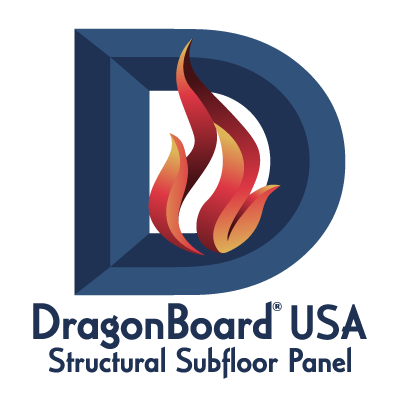DragonBoard Features and Benefits
DragonBoard, a UL approved MgO subflooring panel that is:
- DragonBoard has been an industry leader in MgO Distribution in the United States for over a decade, leading the way in testing and quality assurance programs.
- DragonBoard is a UL-certified and UL-tested Magnesium Oxide Panel with rated floor and wall assemblies (UL G575, UL U055)
- DragonBoard MgO is diaphragm tested as per ASTM E455
- DragonBoard is the only American MgO company that has supplied over 25 million square feet of product.
- DragonBoard is the only MgO company that offers an on-staff engineering team for technical support.
- DragonBoard is easy to handle, cut, and install.
- DragonBoard is a sustainably responsible subflooring material as compared to Portland-based cement boards with an overall lighter-weight and even lower carbon footprint.
- DragonBoard is freeze-thaw tested for 36 months
- DragonBoard is mold, fungus, insect-free per ASTM G21
- DragonBoard is impact resistant per ASTM D 5628
- DragonBoard is NYC approved per MEA
- DragonBoard is Silica, Asbestos, and VOC Free
- Acoustic Assembly ratings of DragonBoard are: Sound Transmission Class as high as STC 59 in assembly and Impact Insulation Class as high as IIC 57 in assembly
- DragonBoard is lighter-weight and substantial cost savings over Portland-cement board
Cutting DragonBoard Structural Panels
©
2007 - 2025
DragonBoard USA

